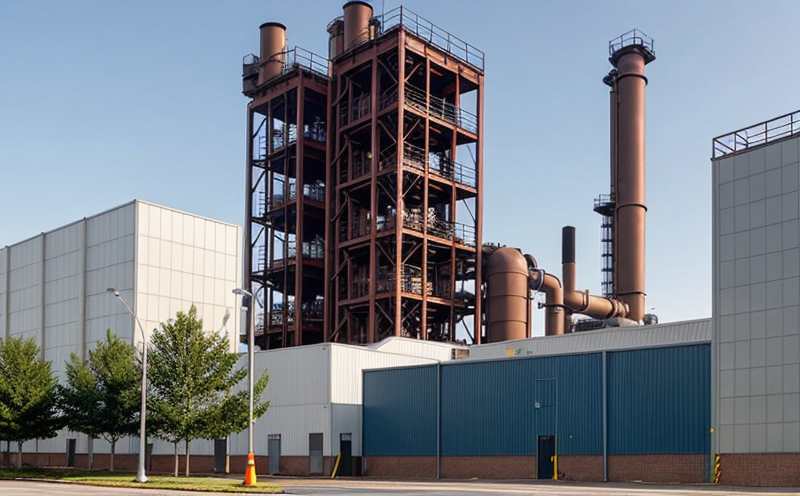ISO 17100 Translation Service Process Compliance Testing in Industry
The ISO 17100 standard sets forth a framework for quality management of translation services. This includes requirements for the translation process, technical documentation and training for translators, as well as ongoing performance evaluation. Compliance with this standard is essential to ensure accurate, reliable, and consistent communication across international markets.
In industrial manufacturing and processing, language can be an obstacle to effective communication between teams working in different languages. This can lead to misinterpretation of critical technical documentation or quality standards, which may compromise product safety and regulatory compliance. The ISO 17100 translation service process is designed specifically for industrial environments where precision and reliability are paramount.
The process begins with a thorough review of the source documents by qualified translators who have expertise in both the language and subject matter. This ensures that technical terms are accurately translated without losing their original meaning or nuance. The translated documents undergo multiple levels of quality assurance, including peer reviews by other translators fluent in the relevant languages.
Once the translation process is complete, it is subjected to rigorous testing against ISO 17100 criteria. This includes checking for accuracy, consistency, and adherence to industry-specific terminology. If any discrepancies are found during this phase, they must be corrected before final approval can be granted. Compliance testing also involves verifying that all relevant stakeholders have access to the translated materials in a timely manner.
The importance of ISO 17100 compliance cannot be overstated for organizations operating internationally or dealing with multilingual teams within their own facilities. By adhering to these standards, companies can ensure they are meeting regulatory requirements and avoiding costly mistakes due to language barriers.
A comprehensive understanding of the translation process is crucial when implementing an ISO 17100-compliant system in industrial settings. This includes not only the actual act of translating text but also ensuring that all supporting documentation is accurate and up-to-date. For example, technical drawings or product specifications must be translated alongside any accompanying manuals or safety instructions.
Furthermore, continuous training for translators working on these projects helps maintain high standards over time as languages evolve and new terms are introduced into professional fields like engineering or manufacturing. Regular audits of translation processes also help identify areas where improvements can be made to enhance accuracy and efficiency.
The benefits of adhering to ISO 17100 go beyond simply meeting regulatory requirements; they extend to improved communication between teams, reduced risks associated with miscommunication, enhanced customer satisfaction through clear product descriptions, and increased competitiveness by demonstrating a commitment to quality within your organization.
Benefits
The implementation of an ISO 17100 translation service process brings numerous advantages to industrial manufacturing and processing companies. These include:
- Enhanced accuracy in technical documentation translations which directly impacts product quality.
- Improved communication between international teams leading to better collaboration and innovation.
- Reduced risk of regulatory non-compliance resulting from language barriers causing misunderstandings about safety guidelines or operational procedures.
- Increased efficiency in meeting deadlines for global clients by having reliable, accurate translations ready when needed.
These benefits contribute significantly to the overall success and reputation of any business operating within an international market. By focusing on these aspects early on during project planning stages, companies can avoid costly mistakes down the line while ensuring that their products meet both local and global standards.
Eurolab Advantages
At Eurolab, we offer unparalleled expertise in providing ISO 17100 translation service process compliance testing for industrial manufacturing and processing industries. Our team of experienced professionals ensures that every step of the translation process meets or exceeds international standards.
We employ only certified linguists who possess deep knowledge about specific technical fields such as mechanical engineering, chemical processes, electronics design, etc., ensuring precise rendering of complex terminologies into target languages. Each translator undergoes extensive training to maintain current industry practices and stay updated with new developments in their respective disciplines.
Our rigorous quality assurance measures include multiple levels of review involving different translators fluent in both source and target languages. Peer reviews help catch potential errors early on so that corrections can be made before final approval is given. Additionally, we conduct regular audits of our translation processes to identify areas for improvement continuously enhancing accuracy and efficiency.
The use of advanced technology such as translation memory systems allows us to ensure consistent terminology across all versions of translated documents while maintaining high levels of security through document encryption methods. This guarantees that sensitive corporate information remains protected during the entire process.
Quality and Reliability Assurance
Evaluation against ISO 17100 involves several key aspects which are critical for ensuring reliable, accurate translations in industrial settings:
- Accuracy: The translated text must be an exact representation of the original source document.
- Consistency: Terminology should remain consistent throughout all versions of the translated documents.
- Adherence to industry-specific terminology: Technical terms used in industrial manufacturing and processing should align with established standards like ISO, ASTM, EN, or IEC where applicable.
The testing process includes evaluating the translation for these factors using various methods including manual checks by experienced linguists, automated linguistic analysis tools, and comparison against reference materials. Any deviations from expected outcomes must be corrected promptly to ensure compliance with all relevant standards.
At Eurolab, we take great care in selecting suitable translators who are well-versed in both the source language and target languages used for specific projects. We also provide ongoing support throughout the translation process to address any issues that arise during testing or implementation phases. This ensures that our clients receive high-quality translations tailored specifically to their needs.





